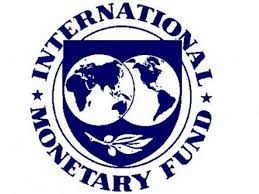
According to a top IMF official, underlying inflation in central, eastern, and southeast Europe is stronger than in advanced economies, necessitating a longer period of strict monetary policy for several central banks in the region than for the European Central Bank.
Some central banks in the region, notably those in Hungary, Poland, and the Czech Republic, have begun to decrease interest rates in response to a decline in price increase from double digits. For the time being, Romania's central bank is delaying rate relaxation.
"The decline of the inflation rate is progressing more slowly in Romania, Moldova, Montenegro, Hungary, and Serbia than elsewhere in the CESEE region," International Monetary Fund European Department Director Alfred Kammer said.
"In general, the underlying inflationary pressures in the region remain stronger than in advanced economies," he said.
"Many central banks in the region should therefore maintain a tight monetary stance for longer than, for example, the ECB."
Investors have fully priced in an ECB rate decrease in June, and the majority of policymakers support it.
Speaking prepared for an economics event in Split, Croatia, Kammer stated that the government's intentions to reduce exceptional support programmes for individuals and businesses both this year and the following will help contain inflation by reducing demand.
According to Kammer, there was a decline in confidence in emerging European economic institutions between 2021 and 2023, and political meddling was observed at various central banks.
"Let me be clear, central banks need to be able to fulfil their mandates on inflation. For this, independence is essential. Interference erodes trust and makes policymaking more costly," he said.
Achieving a soft landing in the region, according to Kammer, will not be simple, but it is crucial given the more difficult goal of improving the development prospects of emerging Europe in an enduring way.
He claimed that the rate at which emerging European economies were catching up to their more developed counterparts had already slowed before the COVID-19 outbreak.
This implies that, excluding newly admitted European members, countries would normally only converge to average living levels in the EU around 2100, which is 50 years later than previously predicted, he said.
(Surce:www.reuters.com)
Some central banks in the region, notably those in Hungary, Poland, and the Czech Republic, have begun to decrease interest rates in response to a decline in price increase from double digits. For the time being, Romania's central bank is delaying rate relaxation.
"The decline of the inflation rate is progressing more slowly in Romania, Moldova, Montenegro, Hungary, and Serbia than elsewhere in the CESEE region," International Monetary Fund European Department Director Alfred Kammer said.
"In general, the underlying inflationary pressures in the region remain stronger than in advanced economies," he said.
"Many central banks in the region should therefore maintain a tight monetary stance for longer than, for example, the ECB."
Investors have fully priced in an ECB rate decrease in June, and the majority of policymakers support it.
Speaking prepared for an economics event in Split, Croatia, Kammer stated that the government's intentions to reduce exceptional support programmes for individuals and businesses both this year and the following will help contain inflation by reducing demand.
According to Kammer, there was a decline in confidence in emerging European economic institutions between 2021 and 2023, and political meddling was observed at various central banks.
"Let me be clear, central banks need to be able to fulfil their mandates on inflation. For this, independence is essential. Interference erodes trust and makes policymaking more costly," he said.
Achieving a soft landing in the region, according to Kammer, will not be simple, but it is crucial given the more difficult goal of improving the development prospects of emerging Europe in an enduring way.
He claimed that the rate at which emerging European economies were catching up to their more developed counterparts had already slowed before the COVID-19 outbreak.
This implies that, excluding newly admitted European members, countries would normally only converge to average living levels in the EU around 2100, which is 50 years later than previously predicted, he said.
(Surce:www.reuters.com)





